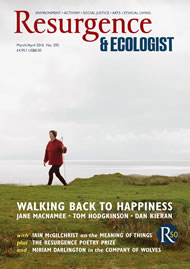In The Globalization of Inequality, François Bourguignon clearly and simply describes how inequality between nations has fallen, helped by globalisation, while inequality within countries has risen, with steadily increasing returns to capital rather than labour. Because we feel what is close to us so much more forcefully than what is far away, we have the sense of the deterioration much more than the progress that has helped take billions out of poverty.
While the first half of this interesting and readable book gives a clearer understanding of the definitional issues and history, it really comes to life in the second half, and especially the last quarter, where the author explores the implications and interrelationships that aggravate inequality, and the policy choices we could make if we really want to tackle the rising inequality that is under way in most countries. While he is careful not to over-claim, his explanation of the US financial crash of 2008 vividly brings alive the implications of growing inequality and the damage that policies that do not challenge or that even encourage it can cause.
Bourguignon concentrates on the economics of inequality, but does give some space to the social and societal dimensions, in particular recognising the impact that public spending on quality education and health services can have on giving more equal opportunities to the poor, and so preventing the embedding of inequality.
He talks less about the extent to which economic inequality contributes to and is reinforced by the political capture that it assists. It feels inevitable that African leaders whose families enjoy health care in private hospitals in the rich world will give lower priority to rural health care in their own countries than someone who has to use them. Western leaders whose campaigns and routes to power have been supported by corporate interests are unlikely to be forceful in driving higher taxation or other legislation that could reduce inequality at the expense of corporate profits often declared in offshore tax havens.
Bourguignon gives a clear picture of the measures that we could take to use taxation as an instrument to reduce inequality. As you would expect from a former chief economist of the World Bank, he carefully and importantly measures and balances the likely impact on inequality and the economy. His conclusion is that there is more we could and most definitely should do.
Coming so soon after the global community has agreed the United Nations’ Sustainable Development Goals, one of which is to reduce income inequality and all of which are underpinned by a commitment to leave no one behind in achieving them, we should take note of Bourgignon’s careful and authoritative insights. In 2014 Oxfam predicted that by 2016 the richest 1% of the world’s population would own as much wealth as half the world’s population. Credit Suisse figures for 2015 showed that we are already there. It isn’t possible to eradicate poverty or have a stable, healthy society with that kind of extreme disparity, so the sooner we listen to Bourguignon, Piketty, Atkinson et al, the better.







